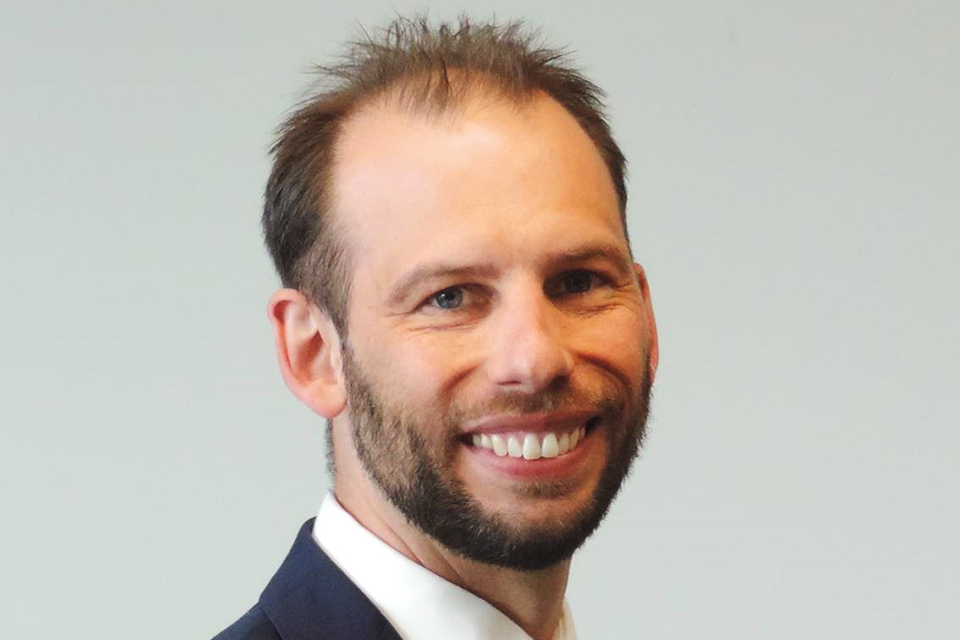UK statement to the TRIPS Council
The UK's Deputy Permanent Representative to the WTO in Geneva, Andy Staines delivered the following statement under Item 1 and Item 9.

Item 1. Notifications under provisions of the agreement
Thank you Chair,
The United Kingdom has always been a strong supporter of the multilateral trading system and intends to use its role in the WTO in 2020 to support efforts to strengthen the multilateral rules-based trading system, and to modernise and build confidence in the WTO.
The United Kingdom is committed to a balanced and effective intellectual property regime, and so we have introduced a number of legislative changes since we last updated the Council on our IP laws and regulations, in accordance with Article 63.2 of the TRIPS Agreement. A transparent IP regime is essential for the growth of our IP intensive industries, including the creative industries, technology, agricultural products, healthcare and the life sciences. Notifications to the WTO are an important part of this regime.
In consideration of the Chair’s encouragement for members to update any outstanding notifications, and the importance the United Kingdom attaches to TRIPS transparency arrangements, we have begun preparations to update our notifications to the WTO Secretariat, using the eTRIPS system. We will be making our first notifications shortly, which will be on legislation changes relating to trade marks and industrial designs, ahead of the next TRIPS Council in May.
Further information setting out some of the implications of the United Kingdom’s departure from the European Union in the WTO can be found in our communication WT/GC/206 circulated to the General Council on 1 February 2020.
The United Kingdom looks forward to engaging with all WTO Members in our collective effort towards defending and improving the multilateral trading system.
Item 9. Follow up to the seventeenth annual review under paragraph 2 of the decision on the implementation of Article 66.2 of the Trips agreement (tech transfer)
Thank you Chair,
The United Kingdom is committed to implementing Article 66.2 of the TRIPS Agreement to promote and encourage technology transfer to least developed country Members. We will provide an update on two projects undertaken by the United Kingdom in recent years.
The project Geo-Referenced Infrastructure and Demographic Data for Development (GRID3) aims to transform the ability of governments, the private sector, development organisations and civil society to use geospatial and demographic data for effective planning and implementation of key services.
GRID3 is working in Nigeria, Zambia, Mozambique, South Sudan and Democratic Republic of Congo and has conducted scoping missions to Tanzania, Ethiopia, Cameroon, Sierra Leone, Ghana, Burkina Faso, Mali and Niger.
The lack of basic information such as population distribution, population structure, settlement maps, road networks, water bodies or administrative boundaries means that decisions such as where to target relief efforts, position polling stations and health centres, how to allocate resources at the subnational level or where to expand energy and internet access are based on out of date and incomplete information.
GRID3 has helped create and use high-resolution demographic data to address identified data needs, providing better local estimates of population which can be used to plan and deliver services and to identify populations which may not otherwise be identified.
Another example is the United Kingdom’s support to Product Development Research. This project aims to develop new human health technologies, such as diagnostics, drugs and vaccines, and to ensure that they are acceptable, affordable and available to those that need them in low income countries.
The United Kingdom Government provides support to a number of different organisations including product development public private product development partnerships (PDPs), which are not for profit organisations based in a number of different countries, working with partners across the globe, depending on the disease and type of technology being developed.
PDP investments have resulted in critically important products, including a new paediatric fixed dose TB drug, with over one million treatments distributed in 93 countries since its launch in 2016, as well as the development of two new vaccines to treat rotavirus for use in India.
The United Kingdom is happy to discuss its projects in more detail with Members at a later date.
Thank you Chair.